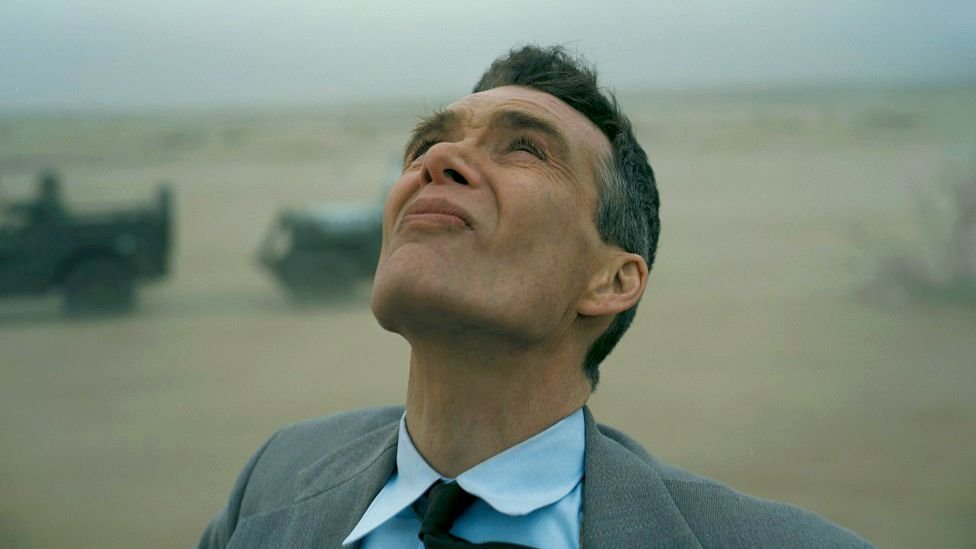In Dante Alighieri’s Divine Comedy he notes a specific kind of hell for those whom he was told “Were not rebels, nor faithful to their God”. He asks “What is it master that oppresses these souls compelling them to wail so loud” His guide answers: “I shall tell you in a few words. Those who are here can place no hope in death and their blind life is so abject that they are envious of every other fate. The world will let no fame of theirs endure, both justice and compassion must disdain them, let us not talk of them but look and pass”. “The world will let no fame of theirs endure, justice and compassion must disdain them”. This is Oppenheimer's hell, and in the end, Oppenheimer is a tragedy of the distracted man who in his obsessions and passions of principle, and inability to stand tall when it mattered most became egregiously short sighted, when he needed foresight. The “tragedy” not of the man himself - which might breed sympathy or martyrdom - but a tragedy of what extended out from that folly. What he created and the events that rumbled and shook his quiet confidence in who he was and in what he was doing to pieces, and from there the world that sprung up out of the ashes of it. Oppenheimer's neglect ended up causing two massacres if not a third, killing hundreds of thousands of people in one fell swoop, causing another mass of people to suffer with varying illnesses for generations. Through the rumbling stomping sounds of Ludwig Göransson’s score, the cold aesthetic grotesque beauty in Hoyte Van Hoytema’s photography, the imagined bodies he steps in, the kangaroo trial he endures, the non stop boiling vexation created by those who saw it coming a mile away, and the claustrophobic guilt of Oppenheimer once he finally came to see what was so obvious to those around him, there can be no other conclusion, but that this film is viscerally angry at Oppenheimer, while in recognition, that not only was he not alone, but was not fairly treated, even as he got what he karmically earned. In this sense “Now I Am Become Death, the Destroyer of Worlds” is not an opportunity to whip up a sense of mourning, nor a finger wag, but a stern clear eyed warning of the terrors of any form of neutrality when the time calls for a definitive stand… In essence, If you stand for nothing, you fall for anything, and anything in this case was a fall into the catastrophic devastation of man and world.



